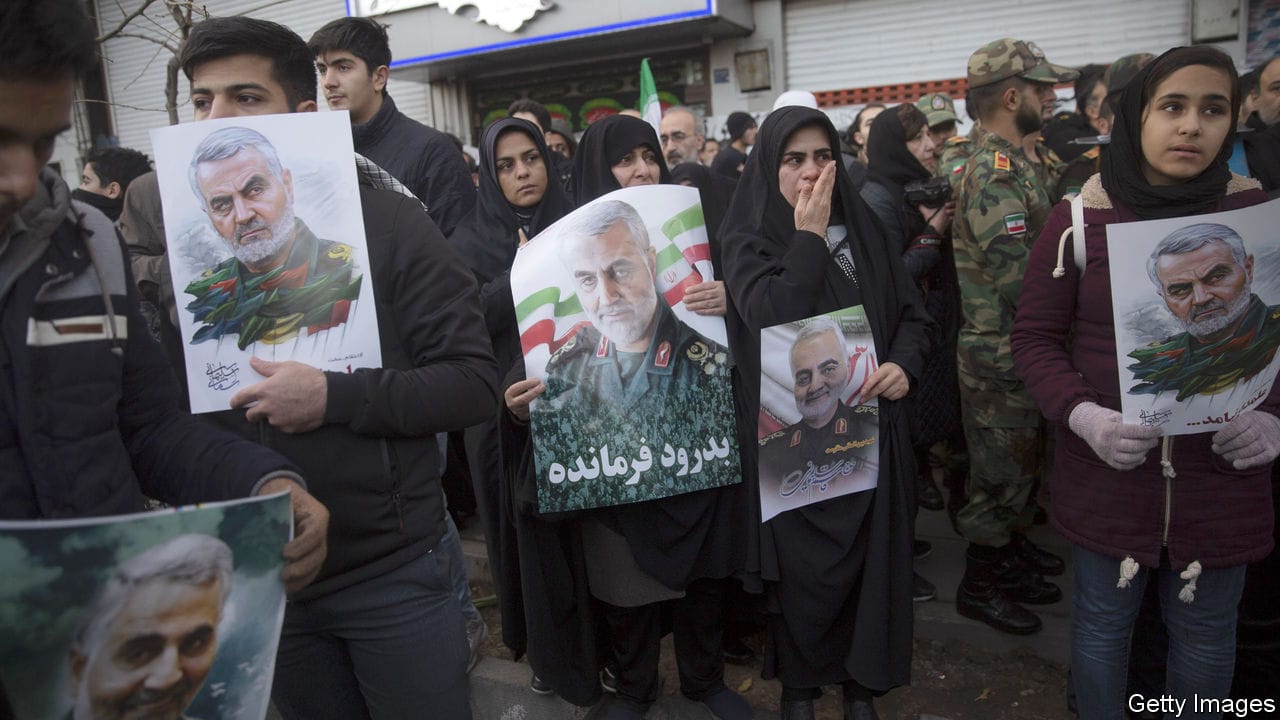- by MAJDAL SHAMS
- 07 28, 2024
-

-
-
Loading

Loading

IT WAS, ACCORDING to David Petraeus, a former American army general and director of the CIA, “more consequential” than the killing of Osama bin Laden or of Abu Bakr al-Baghdadi. Few bemoaned the demise of the jihadist leaders of al-Qaeda and Islamic State. But the killing on January 3rd by drone strike of Qassem Suleimani, head of Iran’s Quds Force, the foreign-operations branch of the Islamic Revolutionary Guard Corps (IRGC), has sparked a furore over the legality and the impact of his assassination.The American authorities dislike the word “assassination”, because it implies a flouting of international and humanitarian law. Indeed, some human-rights lawyers see the use of drones to kill people as almost always unlawful. Agnès Callamard, the UN’s special rapporteur on extrajudicial, summary or arbitrary executions, has argued that “outside the context of active hostilities, the use of drones for targeted killing is almost never likely to be legal....lethal force can only be used where strictly necessary to protect against an imminent threat.” She has deplored the “kill lists” of what the Americans call “specially designated global terrorists” since they have no way of proving their innocence, and in effect face a sentence of death without due process of law. She has criticised the Trump administration for killing General Suleimani.